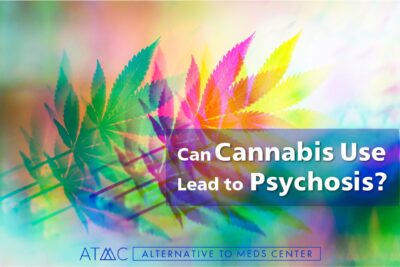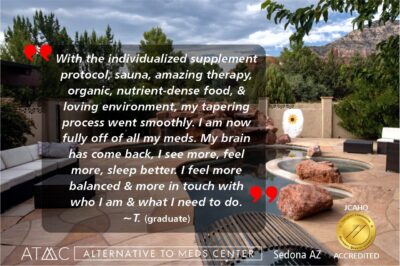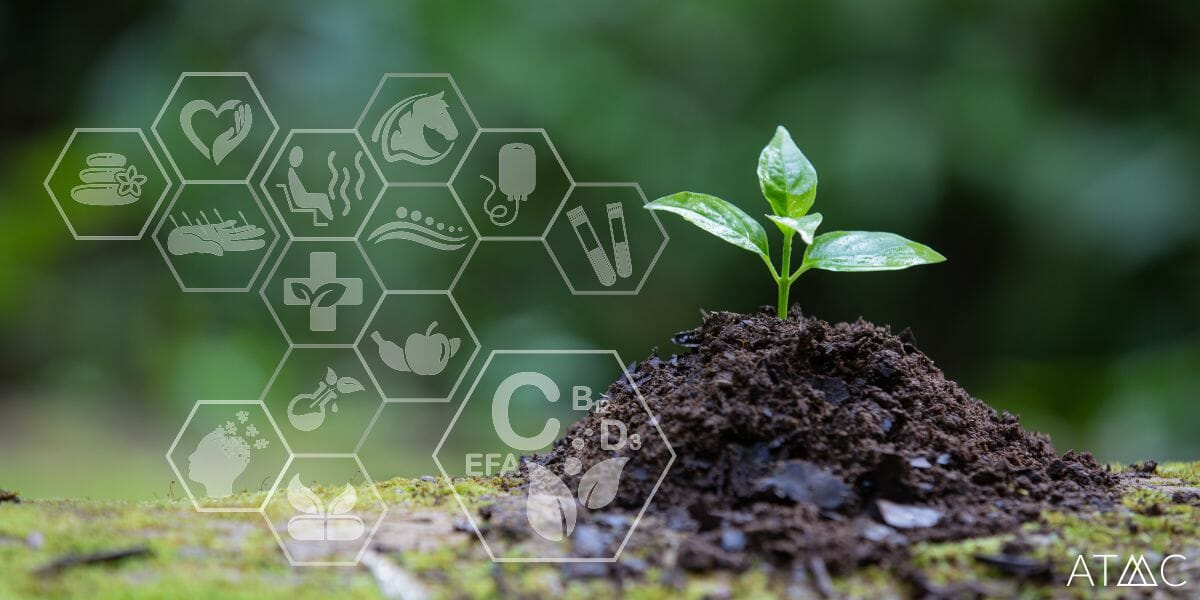Last Updated on January 15, 2024 by
Alternative to Meds Editorial Team
Medically Reviewed by Dr Samuel Lee MD
Table of Contents:

Last Updated on January 15, 2024 by
Alternative to Meds Editorial Team
Medically Reviewed by Dr Samuel Lee MD

To the question “what is psychosis,” think of it as a set of symptoms rather than one single onset. Psychosis is not exactly a condition but rather the description of symptoms that may arise as a reaction to cannabis use in some individuals. 
Many illicit drugs are capable of producing symptoms of psychosis, though the effects are typically short-lived and immediately follow consumption of the drug. The symptoms of intoxication from some types of drugs, including cocaine and methamphetamine, can easily mirror acute psychotic episodes. Cannabis-induced psychosis is linked to elevated THC levels, eventually leading to disturbing and often dangerous consequences.
Cannabis-induced psychosis is a type of drug-induced psychosis that is linked with high levels of THC, a psychoactive constituent of marijuana that builds up in the fatty tissues of the CNS, the brain, and the body in general. Marijuana is a plant with some 113 known cannabinoids, each with its own effects. Some, like CBD, may provide pain-relief, relaxation, can reduce nausea in chemotherapy, help with symptoms of autism, or provide other documented benefits. However, the psychoactive effects from the cannabinoid called THC, especially in high concentration, can be cumulative in the body over time and pose great risk to mental health.2-4
Some genetic profiles of users allow for straightforward metabolism and elimination of THC. These are typically people who do not suffer psychotic symptoms after consumption. But others may lack the enzymes needed to quickly metabolize THC and so levels build up over time. Even individuals who do have the genetic profile (enzymes) needed to metabolize THC easily, still retain the drug compounds in the body for up to 30 days before they are broken down and eliminated. Those without the genetic apparatus needed to metabolize and eliminate THC will continue to have lingering high levels in the body, especially with continuing consumption, and manifestations of psychosis will be more likely to occur.
Any type of substance abuse disorder can eventually lead to psychological problems, personality changes, and episodes of acute distress — including marijuana. Psychosis not only poses these dangers, but also the threat of bodily injury to the individual struggling with psychotic symptoms and those around them. People experiencing psychotic episodes may be completely unaware of their actions or consequences. In cannabis-induced psychotic episodes, the symptoms are often described as schizophrenia-like and erroneous diagnoses of schizophrenia often overlap in this population. Such a diagnosis is often accompanied by heavy drugs, such as antipsychotics, which can relieve some symptoms, but will not resolve the actual cause of the marijuana-induced psychosis.5-8
Cannabis is only one of many types of drugs that can induce psychosis.9
Despite the fact that these substances are generally more harmful than cannabis, the appearance rate of cannabis-induced psychosis has increased worldwide. Areas that have recently enacted legislation permitting recreational marijuana sale and consumption have reported sharp increases in both cannabis use, and in the number of cannabis-related ER visits over recent years.1,13
The potency of marijuana currently available is much greater than in previous years. Higher levels of THC in cannabis produce more intense effects, and also cause tolerance to build more quickly. This can easily escalate an individual’s risk of experiencing a psychotic episode. The higher the THC content in cannabis consumed, the greater the risk of experiencing cannabis-induced psychosis in the future.
Cannabis-induced psychosis can cause many troubling symptoms, and some of these symptoms may appear earlier than others. Some may manifest mild symptoms that are gone the next day. In others, symptoms may linger and become increasingly problematic. If you witness any of these symptoms in a loved one or friend who uses cannabis on a regular basis, it is vital to understand that the situation could quickly worsen.
 Atypical behavior, such as a formerly outgoing person becoming withdrawn and reclusive.
Atypical behavior, such as a formerly outgoing person becoming withdrawn and reclusive.*The Journal of Affective Disorders has published a study that states that while cannabis can lighten symptoms such as anxiety or depression or stress in the short term, the use of cannabis exacerbates depression over time.10
There is no single pattern of symptoms that every person will experience during the onset of cannabis-induced psychosis. If you have concerns, or notice any of these symptoms in another person who uses cannabis, encourage or help them to seek treatment before the issue escalates out of control.
Misdiagnosis is a common occurrence if information is not surveyed well. The first step in cannabis-induced psychosis treatment would be identifying the signs of psychotic symptoms and evidence of cannabis use. Medical professionals will typically diagnose a patient with cannabis-induced psychosis if he or she displays psychotic symptoms that are apparently unlinked to a preexisting psychological condition. For example, if an individual has no history of anxiety or other known mental health issues and begins experiencing intense anxiety attacks, lingering paranoia, hallucinations or other troubling effects after use of cannabis, this would suggest a diagnosis of cannabis-induced psychosis.
A diagnosing physician will also look at the timeframe of the appearance of the patient’s psychotic symptoms. If symptoms appeared shortly after consuming cannabis or within a month of ceasing cannabis consumption, this timing would tend to suggest a cannabis-induced psychosis diagnosis. The severity of the patient’s symptoms also contributes to the diagnosis. An individual who has no drug history who experiences intense visual and auditory hallucinations is not the same situation as an individual experiencing the typical delirium and euphoria associated with cannabis intoxication.
Cannabis-induced psychosis generally is long-lasting. Drug-induced symptoms can persist for days, weeks, or even longer. They may continue to escalate in intensity, can disrupt everyday life, and can pose a more severe danger the longer they remain untreated.11
Although public perception of cannabis is very different than it is of drugs like heroin, cocaine, and methamphetamine, any type of substance abuse can be incredibly destructive. Cannabis abuse disorders are relatively underappreciated in public and professional awareness. All cannabis users — and their friends and loved ones — should consider the potential link between cannabis and undesirable mental health symptoms, including psychosis symptoms.12
Despite its complexity, the brain is constructed out of a high percentage of fatty tissue, making it one of the most vulnerable parts of the human body when it comes to toxic exposure. Toxins have a high proclivity to be absorbed and stored in fatty tissues. Consistent cannabis use has an undeniable effect on brain chemistry because of this characteristic. Those facing the highest level of risk are individuals with untreated mental health disorders and unchecked cannabis consumption.

Although medications may play an immediate role in the stabilization of a person, Alternative to Meds Center does not rely on using medication as a long-term solution. Our team of treatment specialists employs evidence-based holistic therapies to help people overcome the effects of drug use and effectively manage mental health conditions without reliance on medications. We also know the value of the holistic detox process and how an integrated and personalized approach is effective. The holistic detox protocols at Alternative to Meds Center help clean the body to enable a better recovery experience. Additional holistic therapies and treatments are designed to address many factors that may need resolving after drug use, including treating psychological issues.
Contact us today to learn more about our program and any other questions you may have, including insurance coverage you may be entitled to. Cannabis-induced psychosis is a dangerous condition that requires immediate attention before the problem spirals further out of control. With comprehensive treatment, anyone can acquire the treatments and skills they need to live a healthier and drug-free life. Call us for more information about Alternative to Meds Center’s treatment programs for cannabis-induced psychosis and other related issues.
1. Roehler DR, Hoots BE, Holland KM, Baldwin GT, Vivolo-Kantor AM. Trends and characteristics of cannabis-associated emergency department visits in the United States, 2006-2018. Drug Alcohol Depend. 2022 Mar 1;232:109288. doi: 10.1016/j.drugalcdep.2022.109288. Epub 2022 Jan 10. PMID: 35033959; PMCID: PMC9885359. [cited 2024 Jan 15]
2. Ng T, Gupta V, Keshock MC. Tetrahydrocannabinol (THC) [Updated 2023 Nov 12]. In: StatPearls [Internet]. Treasure Island (FL): StatPearls Publishing; 2023 Jan-. Available from: https://www.ncbi.nlm.nih.gov/books/NBK563174/ [cited 2024 Jan 15]
3. Chayasirisobhon S. Mechanisms of Action and Pharmacokinetics of Cannabis. Perm J. 2020 Dec;25:1-3. doi: 10.7812/TPP/19.200. PMID: 33635755; PMCID: PMC8803256. [cited 2024 Jan 15]
4. Chayasirisobhon S. Cannabis and Neuropsychiatric Disorders: An Updated Review. Acta Neurol Taiwan. 2019 Jun 15;28(2):27-39. PMID: 31867704. [cited 2024 Jan 15]
5. Di Forti M, Quattrone D, Freeman T, et al, The contribution of cannabis use to variation in the incidence of psychotic disorder across Europe – a multi-centre case-controlled study. published in The Lancet mar 19, 2019 [cited 2024 Jan 15]
6. Mathers DC, Ghodse AH. “Cannabis and psychotic illness.” Br J Psychiatry. 1992 Nov;161:648-53. doi: 10.1192/bjp.161.5.648. PMID: 1358394. [cited 2024 Jan 15]
7. Degenhardt L. “The link between cannabis use and psychosis: furthering the debate.” Psychol Med. 2003 Jan;33(1):3-6. doi: 10.1017/s0033291702007080. PMID: 12537030. [cited 2024 Jan 15]
8. Verdoux H, Gindre C, Sorbara F, Tournier M, Swendsen JD.” Effects of cannabis and psychosis vulnerability in daily life: an experience sampling test study.” Psychol Med. 2003 Jan;33(1):23-32. doi: 10.1017/s0033291702006384. PMID: 12537033. [cited 2024 Jan 15]
9. Fiorentini A, Cantù F, Crisanti C, Cereda G, Oldani L, Brambilla P. Substance-Induced Psychoses: An Updated Literature Review. Front Psychiatry. 2021 Dec 23;12:694863. doi: 10.3389/fpsyt.2021.694863. PMID: 35002789; PMCID: PMC8732862. [cited 2024 Jan 15]
10. Cuttler C, Spradlin A, McLaughlin RJ. A naturalistic examination of the perceived effects of cannabis on negative affect. J Affect Disord. 2018 Aug 1;235:198-205. doi: 10.1016/j.jad.2018.04.054. Epub 2018 Apr 6. PMID: 29656267. [cited 2024 Jan 15]
11. Rentero D, Arias F, Sánchez-Romero S, Rubio G, Rodríguez-Jiménez R. Cannabis-induced psychosis: clinical characteristics and its differentiation from schizophrenia with and without cannabis use. Adicciones. 2021 Mar 31;33(2):95-108. English, Spanish. doi: 10.20882/adicciones.1251. PMID: 32677690. [cited 2024 Jan 15]
12. Connor JP, Stjepanović D, Le Foll B, Hoch E, Budney AJ, Hall WD. Cannabis use and cannabis use disorder. Nat Rev Dis Primers. 2021 Feb 25;7(1):16. doi: 10.1038/s41572-021-00247-4. PMID: 33627670; PMCID: PMC8655458. [cited 2024 Jan 15]
13. Hjorthøj C, Larsen MO, Starzer MSK, Nordentoft M. Annual incidence of cannabis-induced psychosis, other substance-induced psychoses and dually diagnosed schizophrenia and cannabis use disorder in Denmark from 1994 to 2016. Psychol Med. 2021 Mar;51(4):617-622. doi: 10.1017/S0033291719003532. Epub 2019 Dec 16. PMID: 31839011. [cited 2024 Jan 15]
Originally Published Jun 28, 2019 by Diane Ridaeus

Dr. Samuel Lee is a board-certified psychiatrist, specializing in a spiritually-based mental health discipline and integrative approaches. He graduated with an MD at Loma Linda University School of Medicine and did a residency in psychiatry at Cedars-Sinai Medical Center and University of Washington School of Medicine in Seattle. He has also been an inpatient adult psychiatrist at Kaweah Delta Mental Health Hospital and the primary attending geriatric psychiatrist at the Auerbach Inpatient Psychiatric Jewish Home Hospital. In addition, he served as the general adult outpatient psychiatrist at Kaiser Permanente. He is board-certified in psychiatry and neurology and has a B.A. Magna Cum Laude in Religion from Pacific Union College. His specialty is in natural healing techniques that promote the body’s innate ability to heal itself.

Diane is an avid supporter and researcher of natural mental health strategies. Diane received her medical writing and science communication certification through Stanford University and has published over 3 million words on the topics of holistic health, addiction, recovery, and alternative medicine. She has proudly worked with the Alternative to Meds Center since its inception and is grateful for the opportunity to help the founding members develop this world-class center that has helped so many thousands regain natural mental health.

Can you imagine being free from medications, addictive drugs, and alcohol? This is our goal and we are proving it is possible every day!
Read All StoriesView All Videos